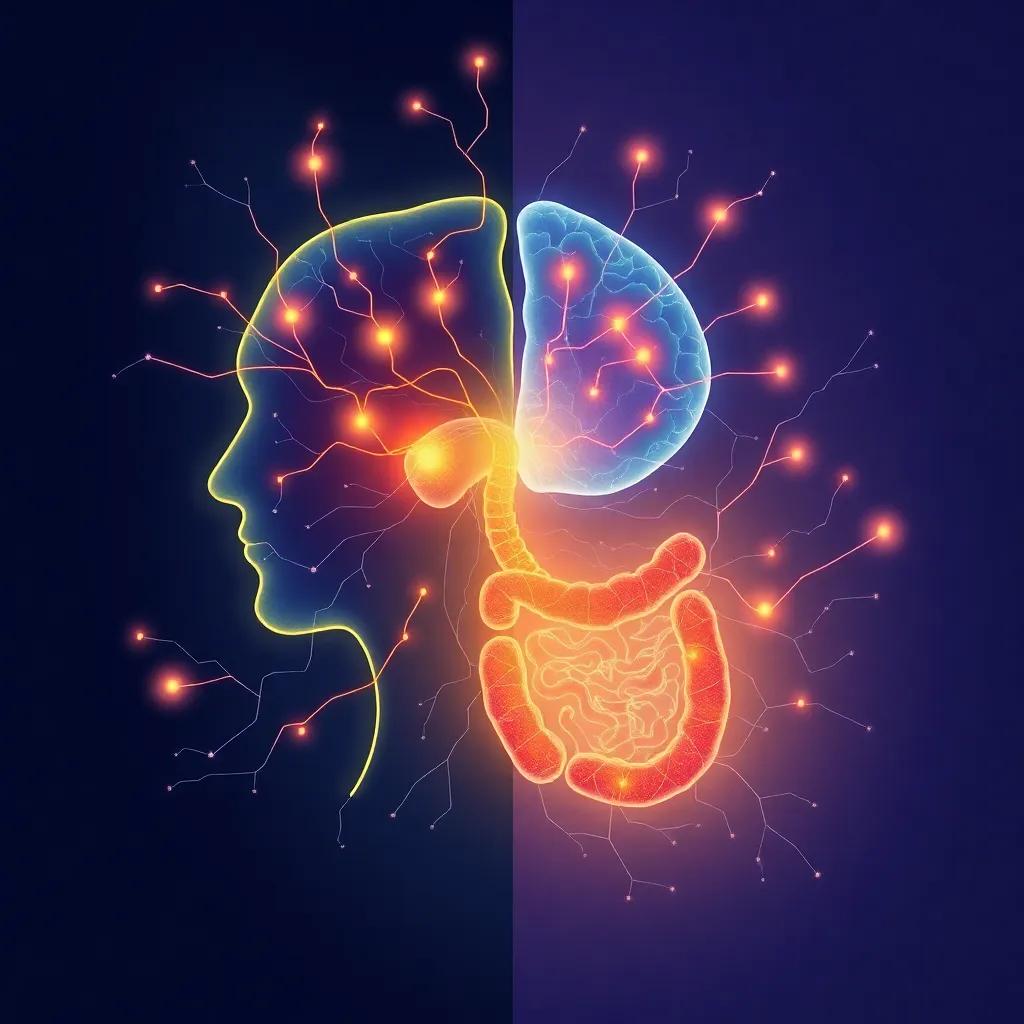Explore the gut-brain axis, its role in digestive health, and evidence-based strategies to heal your gut and improve mental well-being.
The gut-brain axis plays a pivotal role in digestive and mental health. Discover how to heal your gut with science-backed strategies.
Understanding the Gut-Brain Axis
The gut-brain axis is a complex communication network linking the gastrointestinal tract and the brain. This bidirectional system involves the vagus nerve, neurotransmitters, and the gut microbiome. According to a study published in Nature Reviews Gastroenterology & Hepatology
, the gut-brain axis plays a crucial role in regulating digestion, mood, and overall health.
Dr. Emeran Mayer, a leading expert in neurogastroenterology, explains, The gut and brain are in constant communication, influencing each other in ways we are only beginning to understand.
This connection is why digestive disorders like irritable bowel syndrome (IBS) and leaky gut are often linked to mental health issues such as anxiety and depression.
Common Digestive Disorders and Their Mental Health Links
IBS, a condition affecting 10-15% of the global population, is characterized by abdominal pain, bloating, and irregular bowel movements. Research from the American Journal of Gastroenterology
highlights that up to 60% of IBS patients also suffer from anxiety or depression. Similarly, leaky gut syndrome, where the intestinal lining becomes permeable, has been associated with systemic inflammation and mood disorders.
Dr. Alessio Fasano, a renowned gastroenterologist, states, Leaky gut can trigger an immune response that affects the brain, leading to symptoms like brain fog and depression.
These findings underscore the importance of addressing gut health to improve mental well-being.
Evidence-Based Strategies to Heal the Gut
1. Dietary Changes: A diet rich in fiber, fermented foods, and omega-3 fatty acids can support a healthy gut microbiome. The Mediterranean diet, in particular, has been shown to reduce inflammation and improve gut health.
2. Probiotics and Prebiotics: Probiotics, such as Lactobacillus and Bifidobacterium, can restore gut flora balance. Prebiotics, found in foods like garlic and onions, feed beneficial bacteria. A 2020 study in Frontiers in Microbiology
found that combining probiotics and prebiotics enhances gut-brain communication.
3. Stress Management: Chronic stress disrupts the gut-brain axis. Techniques like mindfulness, yoga, and deep breathing can reduce stress and improve gut health. Dr. John Cryan, a neuroscientist, emphasizes, Managing stress is as important as diet when it comes to gut health.
Recent Research on the Gut-Brain Connection
Recent studies have shed light on the gut-brain axis’s role in neurodegenerative diseases like Alzheimer’s and Parkinson’s. A 2021 study in Science Translational Medicine
found that gut bacteria produce metabolites that influence brain function. This groundbreaking research opens new avenues for treating brain disorders through gut health interventions.
Dr. Jane Foster, a microbiome researcher, notes, We are on the brink of a revolution in understanding how the gut impacts the brain.
This highlights the potential for personalized gut-brain therapies in the future.
Practical Tips for a Healthy Gut-Brain Axis
1. Eat a Diverse Diet: Incorporate a variety of fruits, vegetables, whole grains, and fermented foods to support a diverse microbiome.
2. Stay Hydrated: Drinking plenty of water aids digestion and maintains gut lining integrity.
3. Exercise Regularly: Physical activity promotes gut motility and reduces stress.
4. Get Enough Sleep: Poor sleep disrupts gut health and exacerbates stress.
5. Limit Processed Foods: Highly processed foods can harm gut bacteria and increase inflammation.
By adopting these strategies, you can nurture your gut-brain axis and improve both digestive and mental health. As Dr. Mayer aptly puts it, A healthy gut is the foundation of a healthy mind.




